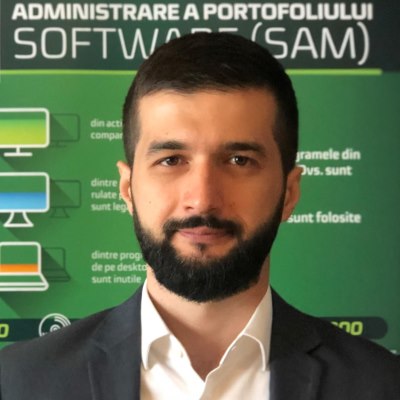An enterprise – that is about to virtualize its server environment – has to carefully select the technology that will support its notions and needs, both from capability and price point of view, as a project like this can turn into a disaster, if the company does not apply the appropriate license constructions in the virtual environment. – Zsolt Csala, our Consulting Director was interviewed by Computerworld in the topic of virtualization’s licensing consequences.
Why? Because the cost benefits – that are expected to be realised through virtualization, better utilization of the hardware resources, more efficient energy consumption and support that needs less human resources – can easily be consumed by the higher license fees.
If the customers are using the vendors’ software products in a higher capacity environment, where the resources are utilized a lot better, manufacturers proportionate their license revenue accordingly. This is what manufacturers are mainly interested in, and this is why they incorporate various supplements to the license terms and conditions, which then limit the available benefits linked to virtualization – says Zsolt Csala, the Consulting Director of IPR-Insights Inc.
Furthermore virtual machines can flexibly move above the hosts, therefore it is hard to track which instances are using what resources at a time, and it makes licensing even more difficult.
In case of some server products Microsoft particularly specifies, that the instances can only be transferred to another hardware just once within 90 days – brings the example Zsolt Csala. This is a common practice how vendors try to head customers for their preferred license constructions. The mentioned restriction can be dissolved for example in case of the Windows Server by switching to Datacenter edition. Considerable though, how many physical and virtual servers and processors is it about, because the decision between the two options (more expensive but flexible, or cheaper with limitations) can only be decided based on this.
Oracle needs special attention, as it’s license constructions make difference between hard- and soft partitioning, so basically between preferred (for example their own) and not preferred (eg. VMware) virtualization technologies. Whereas in case of hard partitioning users only have to buy licenses for the virtual machine, in case of soft partitioning the physical host has to be licensed. Due to the high capacity hardware this is more expensive in general, but if the user runs Oracle databases on the same iron regularly enough, this could even be a source of savings.
Careful planning can mean a lot, but there is no evergreen recipe – reckons Zsolt Csala. We always work based on customized surveys to be able to propose, what possibilities will serve the respective enterprise the best – that is going down the road of server environment virtualization -, so our customers will be able to choose between the feasible options considering licensing perspectives as well.






































